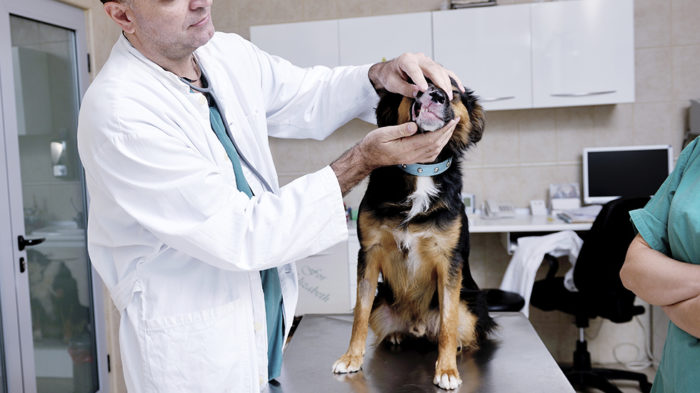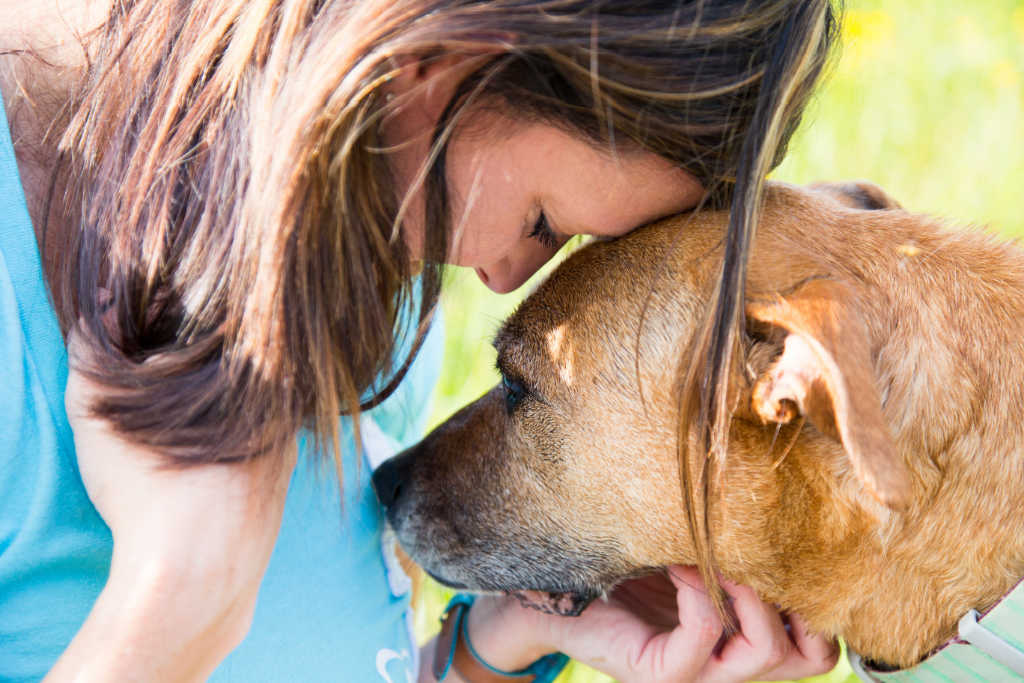Just like humans develop health issues as they grow old, the members of the canine population are exactly the same. Growing old in a dog’s world means reduced exercise, slowness, and constant fatigue, and when a dog that was normally energetic cannot work up a quarter of the physical exertion like it used to do, then some really serious health issues may follow. The top ten health issues of senior dogs are listed below.
Table of Contents
Health Issues In Senior Dogs
1. Arthritis
In the same way that humans have to deal with this disease, dogs become susceptible to arthritis at old age. The most common among canine arthritis is referred to as Degenerative Joint Disease or Osteoarthritis. This is a condition that majorly affects a dog’s weight-bearing joints, including knees, hips, shoulder, and elbow. It leads to the wearing away of cartilage, loss of lubricating fluids, and abnormal bone growth. The changes in the joint result in stiffness, pain, including decreased range of motion. It has been proven that Osteoarthritis is a progressive health condition that worsens over time. No cure exists for this disease yet; however, it can be managed with treatments to ease the pain by slowing the process.
2. Deafness
Loss of hearing takes a gradual process in senior dogs and this starts as their nerves degenerate. This kind of deafness cannot be stopped but the dog can be helped in adapting to the new reality. There are pet parents who have mistaken the symptoms of canine deafness with dementia as both are similar. But hearing loss is better than dementia in dogs as it can be easily handled.
For one, hearing loss is not something that happens overnight, thus, pet parents are afforded ample time to adapt. Training a deaf dog has its own specific methods such as the use of hand signals. A dog that is well trained to adapt to deafness will live its normal day-to-day life as if nothing happened.

3. Blindness
Blindness is akin to deafness, several members of the canine population experience loss of sight gradually. Reasons for blindness in dogs may be cataracts that lead to degenerative changes in the pup’s eye. Any pet parent who suspects that their fur buddy is going blind should schedule an immediate visit to the vet. Again, blindness in dogs can be simply a result of aging – in this case, it cannot be reversed. However, nature equipped the canines with other senses that can aid in adjusting to blindness.
All the pet parent of a blind dog needs to do is to take it slowly with the furry fellow. This kind of dog must be constantly leashed when it is outdoors. As for navigating around the house furniture, the dog only needs to master the layout and with its other senses, it will be able to move around without bumping into things.
4. Kidney Disease
As a dog ages, its kidneys also get old and as a result of this, kidney disease can occur. Renal disease is the chronic one that gradually starts as renal insufficiency, however, with time, it will progress to what is referred to as a full renal failure. Kidney failure has no known cure but is treated or managed in several ways to prolong the quantity and quality of a senior dog’s life. Again, it should be noted that early detection of health issues in senior dogs goes a long way in managing and slowing down the deteriorating condition. Urinalysis may reveal early kidney issues. The signs to look out for include:
- Increased thirst and urination
- Loss of appetite
- Nausea
Lethargy - A dog with a kidney infection can be started on what is known as a prescription kidney diet.
5. Heart Problems
The kidney of an aged dog is not the only organ that can malfunction and cause health issues in senior dogs, the heart is also susceptible. Congestive heart failure is the most common form of canine heart disease which is a condition where the blood pumping mechanism is impaired. When the heart becomes inefficient in pumping blood, fluid will flow back up into the heart, chest cavity, and lungs. The symptoms of congestive heart failure include;
- Coughing
- Difficulty breathing
- Exercise intolerance
- Loss of consciousness
- Unexplained vomiting
- When these signs are evident in an aged dog, a visit to the vet must be scheduled immediately
6. Dementia/Cognitive Dysfunction
A senior dog may likely exhibit developmental changes similar to Alzheimer’s disease and dementia in humans. At the onset, the signs may be just subtle, but in the long run, they can become severe, leading to poor quality of life. The signs that accompany dementia in canines include;
- Disorientation
- Confusion
- Pacing/wandering
- Standing in corners of the house as if lost
Moving to the wrong side as a door is opening - Vocalization
- Withdrawal/not interacting much with its human family
- Urinary/fecal accidents,
- Change in sleeping patterns
- Restlessness
However, any of these symptoms may be indicating other health conditions, but a vet should be consulted for proper diagnosis. Cognitive dysfunction or dementia has no known cure but can be managed with supplements and medications.
7. Cancer

Cancer is one disease that is common among the canine population. Though younger dogs can suffer from cancer, it is more prevalent among senior dogs. Cancers come in different kinds with a different set of symptoms that can be easily be mistaken as signs of old age, thus, it is important to take aged dogs to the vet for routine checks. Things that are not visible to the naked eye can be picked up by diagnostic imaging, lab work, and physical examination. Treatment for cancer varies and greatly depends on the type and stage. The chances of survival depend on early detection.
8. Growths and Tumors
Senior dogs have the tendency to develop different kinds of lumps and bumps which may turn out to be cancerous but a vet’s attention is needed to rule out cancer. Important to note that a good majority of these growths end up being moles, benign warts, or even fatty tumors. They may not call for surgical removal except in situations where the dog is bothered by their presence. But to rule out these growths and tumors as health issues in senior dogs, visit a professional.
Read Also: How To Introduce Your Dog To A Cat
9. Incontinence
Also known as loss of bladder control, this can be one of the common health issues in senior dogs. When a dog loses nerve or muscle control for urination, holding urine becomes a very big issue. Normally a younger dog has the ability to hold urine until it is let outside or goes for a walk where it can conveniently urinate. A dog that has developed Incontinence won’t be able to control when to pass urine.
For some, they may be experiencing regular small bursts of urine, but there are dogs that will just go ahead and empty the bladder as it becomes impossible to hold it. Incontinence may well be an indication of several diseases, thus, a vet should be called in to rule out other health issues. If Incontinence did not result from any serious health condition, your schedule should be adjusted and the dog should be allowed to go for “potty breaks” as often as possible.

10. Obesity
A pup of any age can become overweight but in senior dogs, weight gain is more likely a result of the effects of aging. Obesity can lead to complicated serious health problems such as heart disease, arthritis, and diabetes. This condition in aging dogs can be prevented by decreasing food intake as the canine slows down. Also, pet parents should never forget to keep up with the dog’s exercise sessions. If endurance becomes an issue, then you can break the walk into multiple short walks daily as opposed to one or two long walks.
